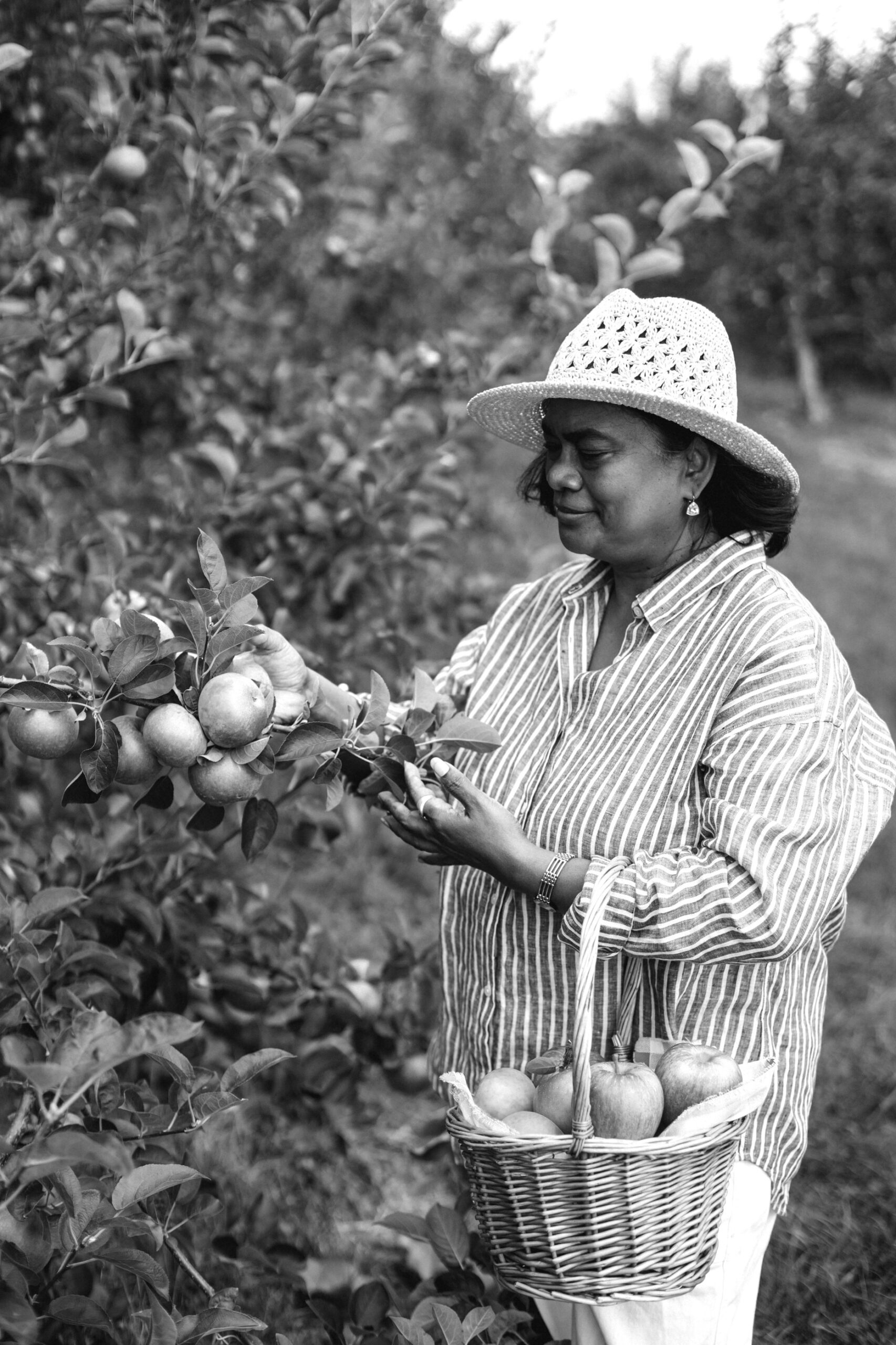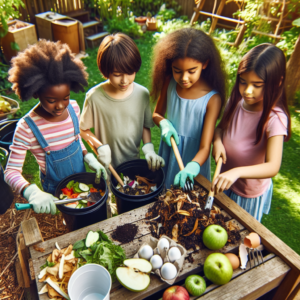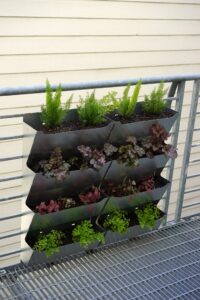Contents
- 1 Sowing the Seeds of Companionship: Gardening to Alleviate Senior Loneliness
- 2 The Healing Power of Green Thumbs: Gardening’s Mental Health Benefits
- 3 Community Cultivation: Joining Forces in Shared Gardens
- 4 Gardening at Home: Creating a Personal Oasis for One
- 5 Branching Out Digitally: Online Gardening Communities and Resources
- 6 Frequently Asked Questions (FAQs)
- 7 Author

Key Takeaways
-
Gardening can be a powerful tool to combat senior loneliness by fostering a sense of community and purpose.
-
Simple gardening projects like container gardens or herb pots can provide easy entry points for seniors new to the hobby.
-
Mental health benefits of gardening include stress relief, improved mood, and potential reduction in the risk of dementia.
-
Physical activity associated with gardening can enhance mobility, flexibility, and provide nutritional benefits from home-grown produce.
-
Community gardens offer social interaction and a sense of belonging, while online resources provide support and knowledge sharing.
Sowing the Seeds of Companionship: Gardening to Alleviate Senior Loneliness
Understanding the Link Between Gardening and Well-being
Loneliness is not just a feeling; it’s a situation that can impact our health as seriously as a chronic illness. For seniors, this rings especially true. However, there’s a natural remedy that’s been right under our noses – or rather, our feet – and it’s as simple as soil, seeds, and a little sunshine. Gardening, an activity that many of us may overlook as just a hobby, is actually a powerful way to weave threads of joy and companionship into the fabric of senior lives.
Why gardening, you ask? Because it’s a nurturing activity that demands patience and care, something that can give seniors a renewed sense of purpose. It’s not just about growing plants; it’s about growing connections – with nature, with others, and with oneself. The rhythmic nature of gardening tasks such as planting, watering, and weeding can be meditative, offering a peaceful retreat from the noise of the world.
Moreover, the act of nurturing something alive provides a counterbalance to feelings of loneliness. As plants grow, bloom, and bear fruit, they become a living testament to the gardener’s effort and care, which in turn can foster a sense of achievement and self-worth.
Starting Simple: Gardening Projects to Engage Seniors
For seniors who may feel overwhelmed by the idea of starting a garden, the key is to begin small. A windowsill herb garden, for example, requires minimal space and effort but can still provide the sensory pleasures of gardening – the scent of basil, the texture of sage, the visual beauty of chives. Here are a few ideas to get started:
-
Container gardening: With a few pots, some soil, and seeds, a patio or balcony can be transformed into a mini oasis.
-
Herb pots: Easy to maintain and useful in the kitchen, herbs like mint, parsley, and thyme are excellent starter plants.
-
Indoor plants: For those with limited mobility or space, indoor plants can bring nature inside and purify the air.
Remember, the goal is not to create a show garden, but rather to find joy in the process of tending to living things. Encouragement and support can come from local gardening clubs, family members, or even a friendly neighbor who shares a love for plants.
The Healing Power of Green Thumbs: Gardening’s Mental Health Benefits

Gardening is not just a physical activity; it’s also a mental one. The benefits for mental health are backed by science and anecdotal evidence alike. Tending to a garden can provide a sense of calm and focus, pulling the mind away from the worries and stresses that can dominate our thoughts.
Research has shown that the act of gardening can lower cortisol levels – the body’s stress hormone. This can lead to reduced stress and anxiety levels, which is especially beneficial for seniors who may struggle with these feelings more frequently.
“Gardening involves a number of elements that are known to promote a positive mood, including physical activity, being outdoors, and engagement with a living ecosystem.”
Additionally, the colors, textures, and fragrances of a garden can stimulate the senses, which can be particularly therapeutic for those who may be experiencing sensory decline. The simple act of touching soil and plants can connect seniors to the earth, grounding them in the present moment.
Therefore, whether it’s through growing a lush flower bed or simply keeping a few potted plants, gardening can be a source of solace and a way to combat feelings of isolation.
Rising out of Isolation: How Gardening Encourages Social Interaction
Gardening can also be a bridge to social interaction. Community gardens are a fantastic example of how green spaces can bring people together. They provide a place for seniors to meet and work alongside fellow gardeners, sharing tips, stories, and the fruits of their labor.
Engaging with others in a shared pursuit can alleviate feelings of loneliness and help build a supportive network. Gardening clubs and classes offer additional opportunities to connect with like-minded individuals. Besides that, participating in these groups can provide a sense of belonging and community, which is crucial for mental well-being.
Even for those who prefer the solitude of their own garden, there are ways to connect. Sharing excess produce with neighbors, swapping seeds, or simply chatting over the fence about the best ways to deal with pests can all be ways to foster connection.
The Science of Stress Relief: Cortisol Reduction Through Horticulture
Let’s delve a bit deeper into the science of it all. Gardening can be considered a form of horticultural therapy, which has been recognized for its stress-relieving properties. The structured, repetitive tasks involved in gardening provide a sense of order and control, which can be particularly comforting in a world that often feels chaotic.
Furthermore, exposure to sunlight during gardening increases vitamin D levels, which has been linked to improved mood. The act of caring for plants can also lead to increased feelings of compassion and empathy, which can counteract the self-focused rumination that often accompanies loneliness.
Most importantly, as seniors watch the seeds they’ve planted sprout and grow, they are reminded that growth and beauty can emerge from even the smallest of actions – a powerful metaphor for life’s potential at any age.
Nurturing Strength: Improving Mobility and Flexibility with Gardening
Gardening isn’t just about the beauty we create outside; it’s also about the strength we build within. For seniors, engaging in gardening activities is an excellent way to maintain and even improve mobility and flexibility. The simple acts of bending to plant seeds, stretching to prune branches, and walking back and forth to water plants are all forms of low-impact exercise that can keep the body agile and help maintain muscle strength.
Moreover, these movements can help improve balance, which is crucial in preventing falls—a common concern for seniors. Gardening encourages gentle, repetitive motion, which not only aids in muscle memory but also promotes the kind of flexibility that can make everyday tasks easier and safer.
It’s important to listen to one’s body and not overdo it. Raised garden beds and ergonomic tools can help minimize strain and make gardening a pleasure rather than a chore. In this way, gardening becomes a sustainable and enjoyable form of physical activity that seniors can look forward to each day.
Harvesting Health: Nutritional Gains from Home-Grown Produce
Beyond the joy of cultivating a garden lies the bounty it yields. Home-grown produce isn’t just fresher and tastier; it’s also packed with nutrients that are essential for senior health. Vegetables and fruits from one’s own garden can contribute significantly to a balanced diet, providing vitamins, minerals, and antioxidants that support overall well-being.
Imagine the satisfaction of cooking a meal with tomatoes, peppers, and basil that you’ve grown yourself. Not only does this make for a delicious dish, but it also adds a layer of pride to the meal that can’t be bought at a store. The act of growing and consuming one’s own food can also stimulate appetite and interest in nutrition, which sometimes wanes in older age.
Therefore, whether it’s a sprawling vegetable plot or a modest collection of pots on a balcony, the nutritional gains from home-grown produce are well worth the effort. And let’s not forget the added benefit of knowing exactly how your food was grown—no pesticides or chemicals, just pure, wholesome goodness.

“Moera Community Garden, in Lower Hutt …” from www.flickr.com
For seniors who may not have the space or desire to maintain a garden on their own, community gardens offer a perfect solution. These shared spaces provide the opportunity to cultivate plants while cultivating friendships. Community gardens are not only a place to grow food but also a place to grow connections and a sense of belonging.
Plotting Together: The Benefits of Community Gardening Groups
Joining a community gardening group can be incredibly rewarding. These groups often consist of gardeners of all ages and levels of experience, making them a rich source of knowledge and camaraderie. Here are just a few of the benefits:
-
Shared Knowledge: More experienced gardeners can offer tips and advice to those just starting out.
-
Physical Assistance: Those with physical limitations can benefit from the help of fellow gardeners.
-
Social Engagement: Regular meetings and garden workdays provide consistent social interaction.
Community gardens can also become hubs of activity, hosting workshops, harvest festivals, and other events that further strengthen community ties. These spaces exemplify the adage that many hands make light work, and the results are often spectacular gardens that are a testament to the power of cooperation and community spirit.
From Seed to Social: Organizing Community Gardening Events
Community gardening events can be a focal point for social interaction and community building. Organizing events like seed swaps, planting days, or harvest potlucks can encourage participation and give seniors a chance to contribute and feel valued. These events provide a reason to gather, share stories, and enjoy the fruits of collective labor.
For those interested in initiating such events, here are a few steps to get started:
-
Coordinate with local community garden leaders to find out what type of events would be most beneficial.
-
Plan the event with accessibility in mind, ensuring that all members of the community can participate.
-
Publicize the event through local newsletters, social media, and community bulletin boards.
By organizing and participating in these events, seniors can enjoy the social aspects of gardening in a structured, yet relaxed, environment. These gatherings are not just about gardening; they’re about creating a vibrant, interconnected community where every member feels like they belong.
Gardening at Home: Creating a Personal Oasis for One

While community gardens offer social opportunities, there is also something to be said for the tranquility of a personal garden. For seniors living alone, a garden can become a sanctuary—a place to reflect, enjoy solitude, and appreciate the beauty of nature.
Container Gardening: Maximizing Limited Spaces
Even if space is limited, container gardening allows for the creation of a lush garden in a small area. Containers can be placed on patios, balconies, or even windowsills, bringing the garden to a manageable level and making it easier to tend without the need to bend or kneel.
Here’s how to get started with container gardening:
-
Choose containers with good drainage to prevent root rot.
-
Select soil that’s appropriate for the type of plants you want to grow.
-
Consider the amount of sunlight your space receives when choosing plants.
With a bit of creativity, container gardens can be as varied and vibrant as any traditional garden. They’re also easier to protect from pests and can be moved as needed to take advantage of changing sunlight patterns.
Companion Planting: Sowing Seeds for Solo Success
Companion planting is another strategy that can enhance the gardening experience. This method involves planting different plants together that benefit each other, either by deterring pests, improving soil health, or providing shade. For example, planting basil near tomatoes can help repel certain insects while also enhancing the flavor of the tomatoes.
Here’s a simple guide to companion planting:
-
Marigolds with just about anything: They’re known to deter a variety of pests.
-
Chives with roses: Chives can help prevent black spot on roses.
-
Carrots with onions: The strong scent of onions can mask the smell of carrots, deterring carrot flies.
Companion planting not only maximizes the health and yield of a garden but also adds an element of strategy and planning that can be mentally stimulating and rewarding.
Branching Out Digitally: Online Gardening Communities and Resources
In today’s digital age, seniors are more connected than ever before. Online gardening communities and resources offer a wealth of knowledge and support that can be accessed from the comfort of home. These platforms can be especially useful for those who may have mobility issues or who live in areas with fewer in-person gardening resources.
Growing Connections: Engaging with Virtual Gardening Groups
Virtual gardening groups on platforms like Facebook, Reddit, or specialized gardening forums are fantastic places to share experiences, ask questions, and find inspiration. Many of these groups have members from all over the world, providing a unique opportunity to learn about different plants and gardening techniques.
Participating in these groups can help seniors feel connected to a larger community, even if they’re physically gardening alone. It’s also a great way to stay mentally active and engaged with a hobby that brings joy and fulfillment.
Tech-Savvy Seniors: Utilizing Digital Tools for Gardening Knowledge
There are also numerous apps and websites dedicated to gardening, which can help seniors track their garden’s progress, identify plants, and solve common gardening problems. Here are a few digital tools that can enhance the gardening experience:
-
Plant identification apps: Snap a photo of a plant to learn more about it.
-
Gardening tutorials: Video platforms like YouTube have countless tutorials on every aspect of gardening.
-
Garden planning software: Plan and visualize your garden layout before planting.
By embracing these digital tools, seniors can continue to grow their gardening knowledge and skills, ensuring that their gardens—and their connections to the world around them—flourish.
Frequently Asked Questions (FAQs)

How can gardening reduce feelings of loneliness in seniors?
Gardening provides seniors with a nurturing activity that can be done alone or in a group, fostering a sense of accomplishment and connection to life. The act of caring for plants requires regular attention and creates a routine that can be comforting and reassuring. Moreover, gardens can serve as a natural gathering place for friends, family, and community members, promoting social interactions and the development of new friendships.
Community gardens, in particular, offer a shared space where seniors can engage with others, share knowledge, and feel part of a collective effort. Additionally, online gardening communities provide a platform for seniors to connect with like-minded individuals from the safety and comfort of their homes, ensuring that even those who are homebound can experience the joys of gardening and the warmth of a community.
What are some simple gardening projects for beginners?
For those new to gardening, starting small is key. Simple projects like growing herbs in a windowsill planter, cultivating a small flower box, or caring for a single houseplant can provide the same therapeutic benefits as a larger garden. Other beginner-friendly projects include:
-
Creating a fairy garden in a small container, which can be both creative and manageable.
-
Planting a succulent garden, as succulents are hardy and require minimal care.
-
Growing microgreens or sprouts indoors, which can be harvested quickly and add fresh flavors to meals.
These projects require minimal investment in terms of time and resources but can still offer the rewarding experience of watching something grow.
Can gardening improve physical health in the elderly?
Yes, gardening can have a positive impact on the physical health of seniors. It’s a form of moderate exercise that can improve endurance, strength, and flexibility. The various tasks associated with gardening, such as digging, planting, weeding, and watering, can help maintain or improve hand-eye coordination, fine motor skills, and overall body strength.
Gardening also encourages seniors to spend time outdoors, which can lead to increased vitamin D intake from sunlight, known for its bone health and immune system benefits. Furthermore, consuming the fruits and vegetables from one’s garden ensures a diet rich in essential nutrients, which is vital for maintaining health and preventing chronic diseases.
How do you start a community garden for seniors?
Starting a community garden for seniors involves a few key steps:
-
Identify a suitable plot of land that has access to sunlight, water, and is easily accessible to seniors.
-
Reach out to local community centers, senior organizations, or gardening clubs to gauge interest and recruit volunteers.
-
Secure funding or sponsorships for supplies and materials, which can come from local businesses, grants, or community fundraising.
-
Plan the garden layout with raised beds and comfortable seating to accommodate seniors with mobility issues.
-
Organize regular events and activities to keep the community engaged and ensure the garden’s upkeep.
With careful planning and community support, a community garden can become a thriving hub for senior activity and engagement.
Are there online gardening communities suitable for seniors?
Absolutely! There are numerous online gardening communities that welcome gardeners of all ages, including seniors. These communities can be found on various social media platforms, gardening websites, and forums. They offer a wealth of information, from plant care to pest control, and provide a space for seniors to ask questions, share experiences, and connect with fellow gardening enthusiasts.
Some popular online gardening communities include GardenWeb, the National Gardening Association forums, and specific gardening groups on Facebook and Reddit. These platforms are user-friendly and often have specific threads or areas dedicated to senior gardeners, ensuring that everyone can find a comfortable space to learn and grow their gardening knowledge.



